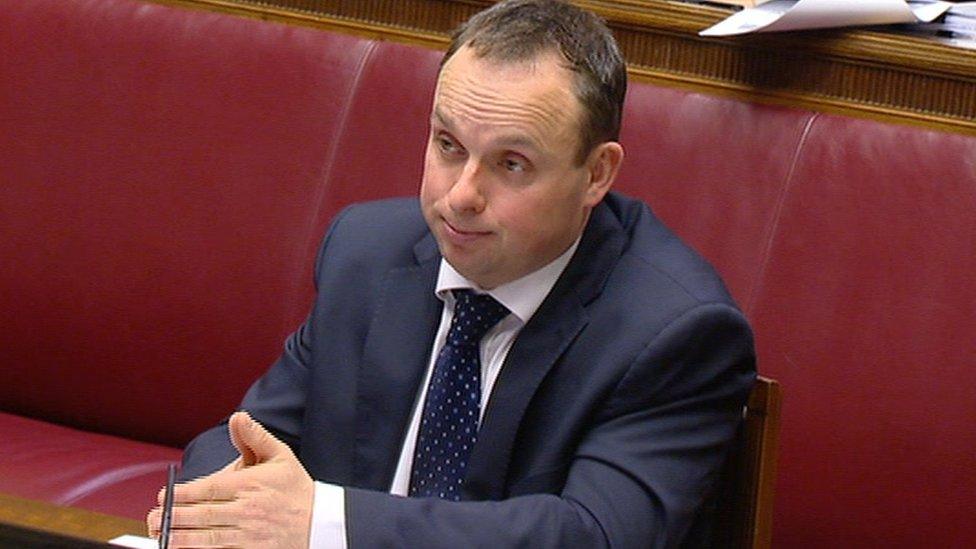RHI: DUP adviser admits removing 'poultry' reference from key paper
- Published
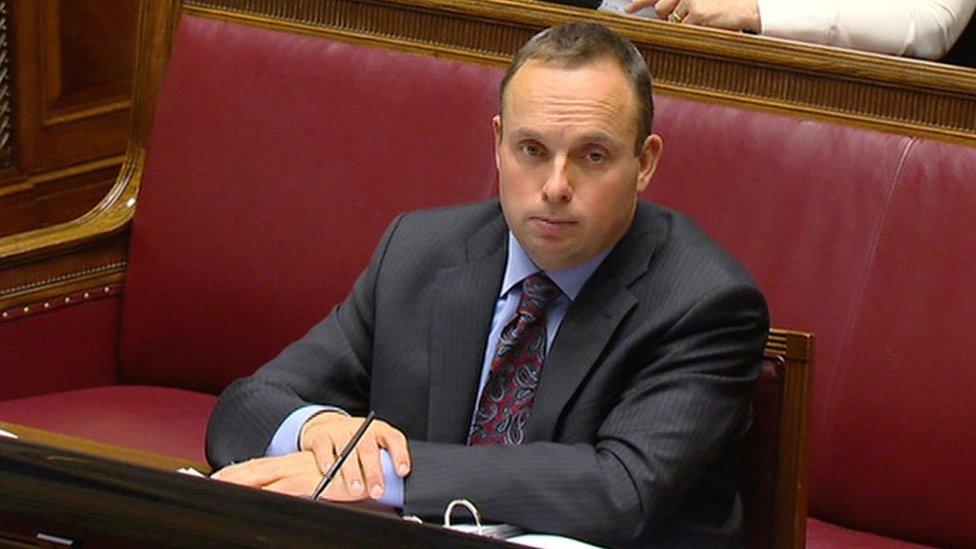
Andrew Crawford has repeatedly denied he sought to keep the RHI scheme open and only ever offered "friendly advice" to those closely involved in plans
A former DUP adviser has admitted removing a reference to the poultry industry being the root cause of the RHI spike from an important government paper.
Andrew Crawford told the RHI inquiry he should not have taken out the term.
It was contained in a draft paper seeking the closure of the scheme in February 2016.
He has three relatives who are RHI claimants, with 11 boilers between them.
Dr Crawford was Arlene Foster's special adviser (Spad) in summer 2015, when plans were in motion to try to bring the flawed scheme under control.
Officials wanted to introduce tariffs that October to reduce the level of lucrative subsidies claimants could earn, but a further four-week delay allowed a massive spike in applications to the scheme, which had a huge impact on the public purse.
'Wholesale uptake'
Poultry farmers make up a significant share of the claimants on the RHI scheme - almost all of them supply Moy Park.
The term that Dr Crawford later removed was contained in a draft paper to be sent to the then Office of the First and Deputy First Minister (OFMDFM), seeking the ultimate closure of the scheme in February 2016.
The paper referred to the "wholesale uptake" of RHI boilers by poultry growers and how it had contributed in large part to the pressure on the budget.
Dr Crawford now accepts that he should not have taken out the reference.
He told the inquiry he was concerned about the inference it created and because he believed there were also other industries that had contributed to the huge numbers getting into the scheme.
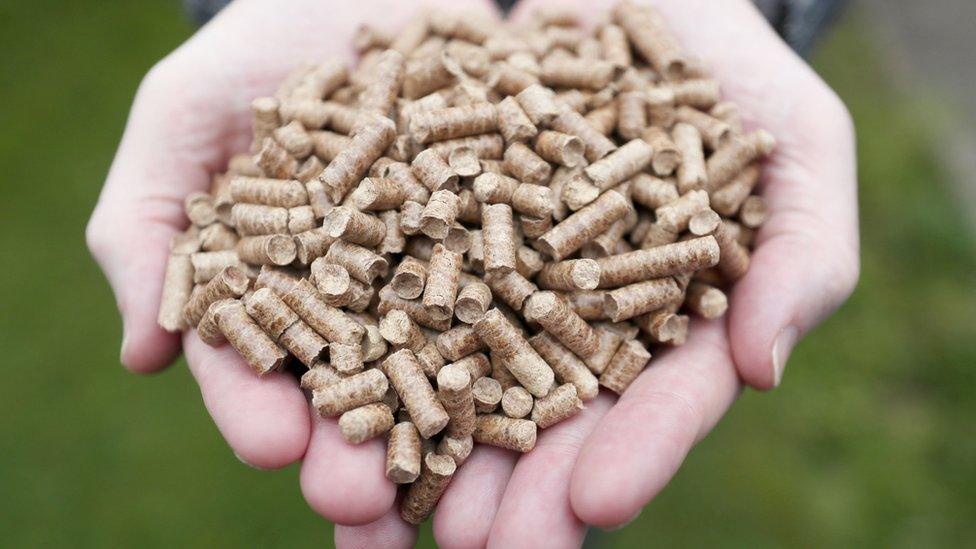
RHI claimants could effectively earn a profit by burning wood pellets in their boilers
Inquiry chair Sir Patrick Coghlin questioned him closely about the removal of the reference.
Sir Patrick said it was "not an inference, it was a true fact".
He asked: "Why remove something that was true?"
He urged Dr Crawford to think carefully about any inference that the panel might take from the change given Dr Crawford's family links to poultry and his regular contact with Moy Park.
Dr Crawford said he felt it was "unfair to single out Moy Park or the poultry industry" especially given the company's contribution to the Northern Ireland economy.
It had nothing to do with his family connections to the scheme and there was "no malice intended" in what he did, he added.
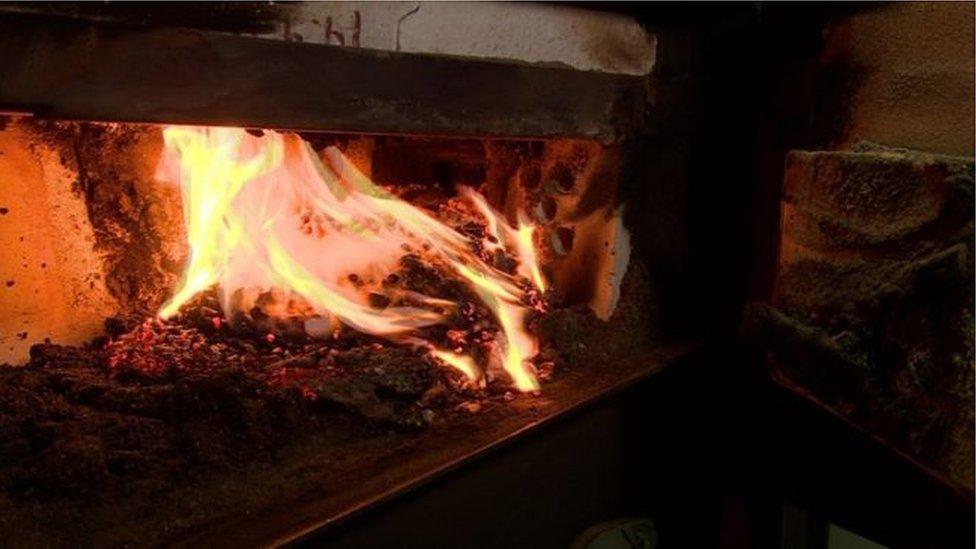
The RHI scheme was established to encourage uptake of eco-friendly heat systems over the use of fossil fuels
'Sales pitch'
Earlier on Friday, Dr Crawford denied he tried to mould changes in the RHI scheme to benefit the poultry industry when plans were being drawn up in summer 2015 for cost controls.
He had suggested an amendment he claimed would have maintained income levels for poultry farmers when tariffs came in.
Officials had suggested a tiered tariff with a lower payment kicking in after boilers had run for 1,314 hours.
But Dr Crawford suggested the boilers be allowed to run for 3,000 hours at the higher tariff.
He said he had been told by a boiler installer that poultry farmers needed 6,000 hours to grow their chicken crop.
Three thousand hours was half the required time. But under the scheme changes, boilers which were twice as big would have been eligible, effectively producing the same amount of heat at the top subsidy payment.
Sir Patrick said officials had wanted to mirror the scheme in Great Britain which paid out 1,314 at the higher tariff, adding: "What you're saying here is that there's a special interest here and that it is the poultry industry that needs 3,000 hours."
The inquiry chair suggested Dr Crawford had been involved in a "sales pitch for Moy Park".
The former DUP adviser denied the portrayal.
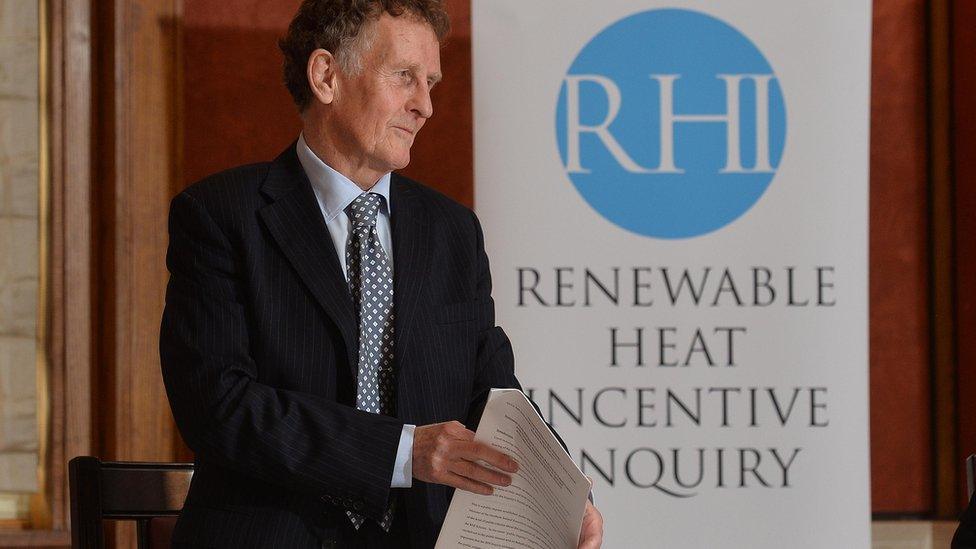
The RHI public inquiry is being chaired by Sir Patrick Coghlin and has heard 90 days of evidence so far
He said he was not helping any particular interest group, and was trying to come up with something that would ease the process of getting the changes through the assembly's enterprise committee and stop people running boilers 24/7.
He also claimed that his proposal would have removed the potential risk of "abuse" of the scheme by those who had boilers installed.
Officials rejected Dr Crawford's plan saying it would mean overcompensation and breach state-aid rules.
'Friendly advice'
The inquiry has heard claims that Dr Crawford was involved in party discussions about the way to deal with proposed cost controls.
In January 2017, he resigned after being named by the enterprise department's top civil servant as the person believed to be responsible for the decisions to delay cost controls, which led to a massive spike in applications and did the most damage to the public purse.
A party colleague, Timothy Cairns, has alleged that in the summer of 2015, he and Dr Crawford were told by another DUP adviser to co-operate on formulating a party position, which ultimately caused the cost-control delays.
Dr Crawford has repeatedly denied the claims and suggested he was only offering "friendly advice".

Who is Andrew Crawford?
A son of a farmer from Beragh in County Tyrone, Andrew Crawford is a former employee of the Ulster Farmers' Union.
He was an assistant to the former DUP MEP Jim Allister before the North Antrim politician quit to form the Traditional Unionist Voice (TUV).
Dr Crawford was an adviser to Arlene Foster when she was enterprise minister during the time the RHI scheme was created, and followed her to the Department of Finance and Personnel in 2015.
When Mrs Foster became first minister in 2016, Mr Crawford then advised another DUP minister, Michelle McIlveen in the Department of Agriculture, Environment and Rural Affairs.
Dr Crawford's poultry farmer brother and two cousins are claimants of the RHI scheme.

'Very nervous'
He instead told the inquiry that when they were looking at making changes to the scheme by the officials' preferred date on 1 October 2015, Mr Cairns was "very nervous about the politics of it".
Sir Patrick suggested the "politics" referred to the saleability of the changes to the biomass boiler installers.
But Dr Crawford said the concern was with getting the legislation through the assembly committee.
He added that once the changes were being talked about "there would have been a lobby on it" and that Mr Cairns had ongoing difficulties with the then Enterprise Minister Jonathan Bell.
Dr Crawford has claimed in his oral evidence and witness statements to the inquiry that Mr Cairns was concerned he could lose his position as an adviser if he "wasn't careful" in how he handled changes to the RHI scheme.
Mr Cairns has denied that allegation.
No 'loud altercations'
Also on Friday, Dr Crawford addressed claims heard by the inquiry that in January 2016 there was a "major row" between him and the now head of the civil service David Sterling over the scandal.
Former minister Jonathan Bell, in his evidence, said he was told by his adviser Timothy Cairns that David Sterling had shouted at Dr Crawford: "You kept this scheme open for the benefit of your family and you've caused a significant budgetary crisis in Northern Ireland."
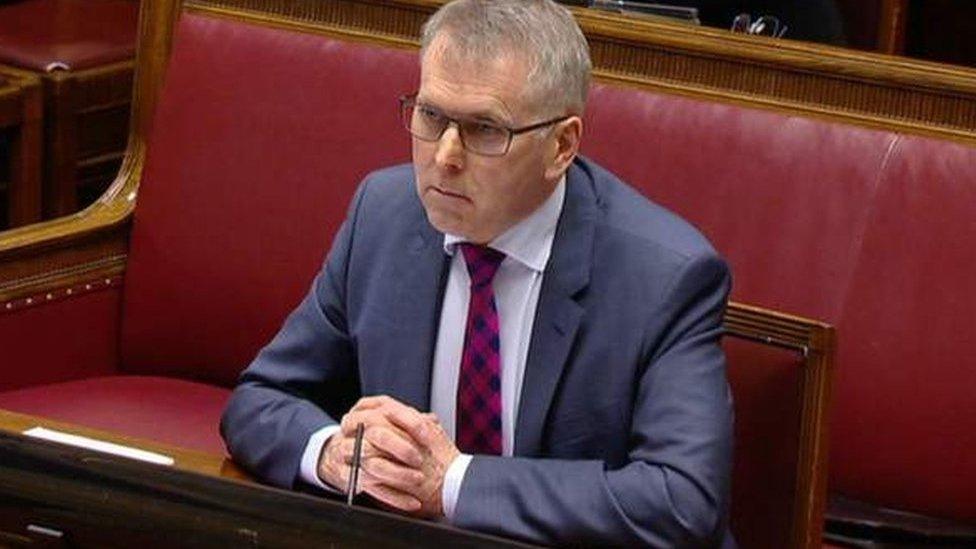
Head of the civil service David Sterling was permanent secretary in the Department of Finance when problems with RHI were flagged up
Dr Crawford said that conversation had never taken place and that "at no stage did we have loud altercations or a row".
Instead, he said when RHI became a "live issue", Mr Sterling alerted him to the "fact that Dr (Andrew) McCormick was blaming me for delays to the scheme".
"I was quite taken back at the time," he added.
The inquiry has also heard evidence that the row may not have actually involved David Sterling, but another finance department official, Mike Brennan.
Mr Brennan has confirmed no such incident took place - and Dr Crawford said he did not recognise the claim either.
He said when problems with the scheme became known, he made finance officials aware he had family members who were RHI claimants, but that at no time was an allegation put to him that he had sought to keep the scheme open for the benefit of his relatives.
'Advance notice' denial
On Friday afternoon, it was put to Dr Crawford that in January 2016 he told Moy Park that the scheme was closing.
It is alleged to have happened at a meeting attended by the new Finance Minister Mervyn Storey the company's head office.
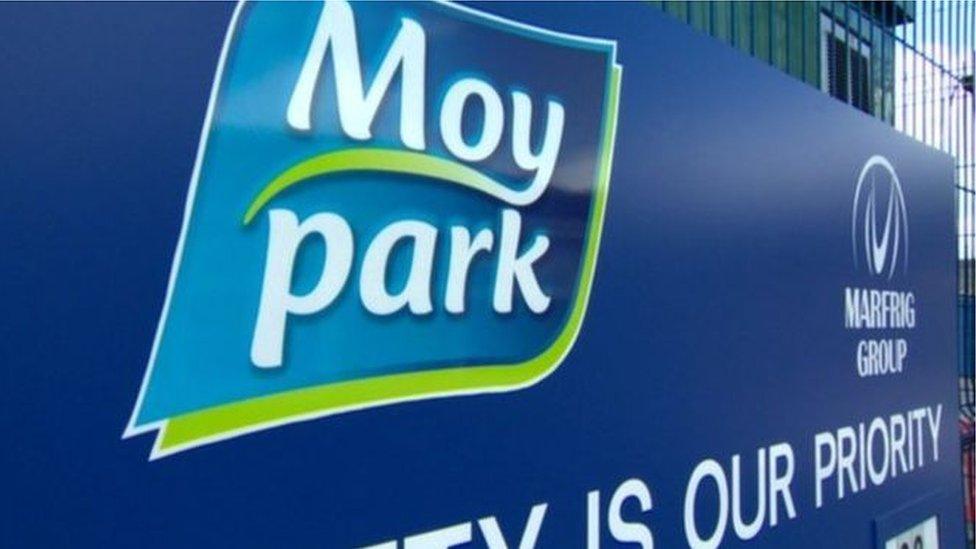
Last week Moy Park was bought by the US company Pilgrim's Pride in a £1bn deal
In its evidence to the inquiry, the poultry giant said Dr Crawford gave its officials advance notice of the closure date - three weeks before the news was publicly announced.
Dr Crawford disputed that he would have given the information, because he did not believe he had the detail on the closure date at that time.
He was also taken through a series of internal Moy Park emails from January 2016, which set out its plans to try and get a further 500 poultry houses converted to biomass before the scheme closed.
The email chain concluded with one official making a reference to "organising a time with Andrew Crawford".
Mr Crawford said he could not recall whether that meeting had ever taken place but he was not suggesting it had not happened.
Ultimately the scheme was closed on 29 February 2016.
Mr Crawford said he had done things he ought not to have.
But on the question of whether he had delayed cost controls, he said he believed the inquiry had established that he had not been responsible.
He looked forward to the inquiry's findings in respect of his role in that, he added.
Dr Crawford appeared before the inquiry panel for a total of six days.
Next week the inquiry will hear from officials from Moy Park and Invest NI.
- Published13 September 2018
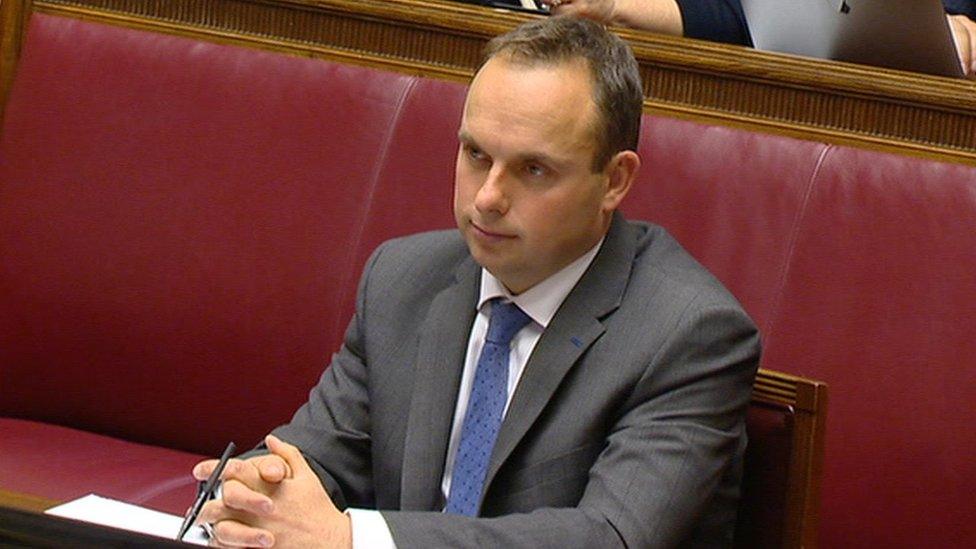
- Published12 September 2018
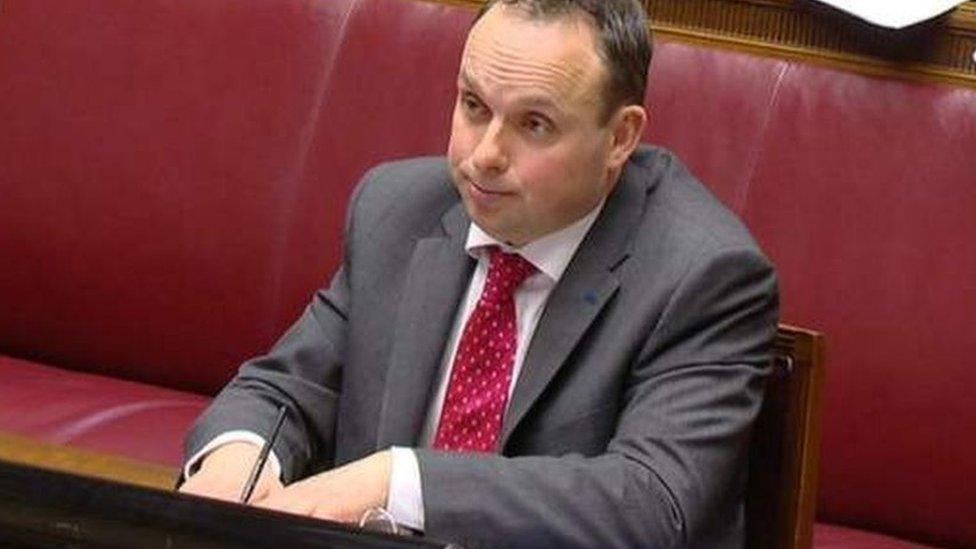
- Published11 April 2018
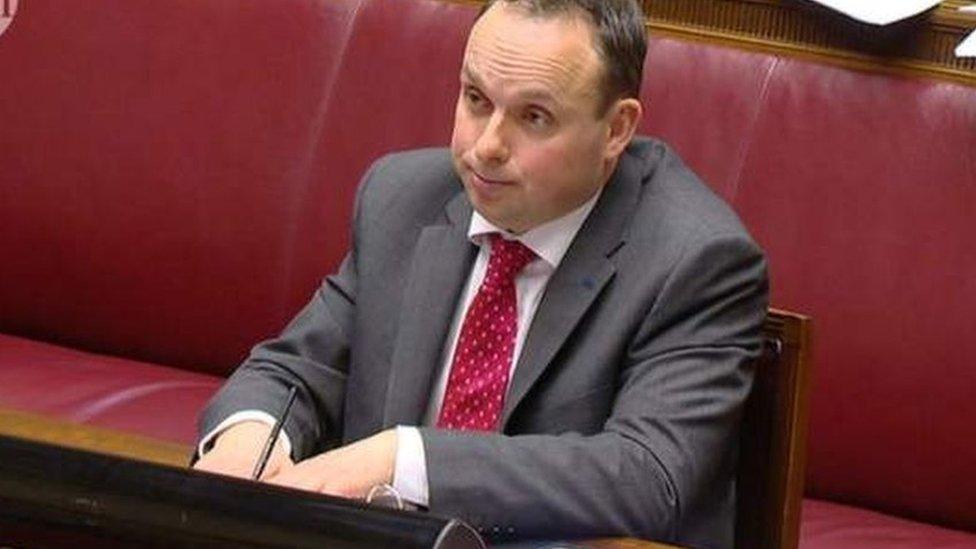
- Published11 September 2018
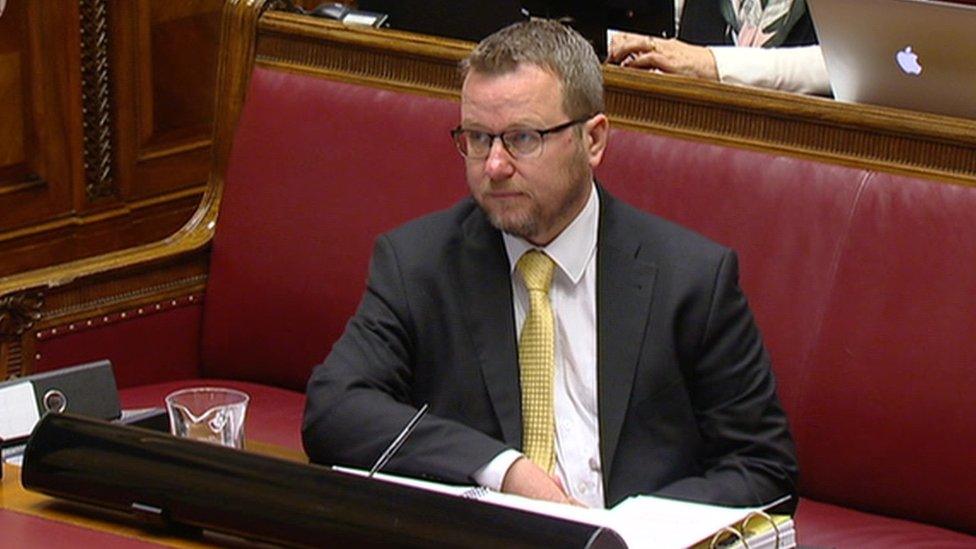
- Published11 September 2018
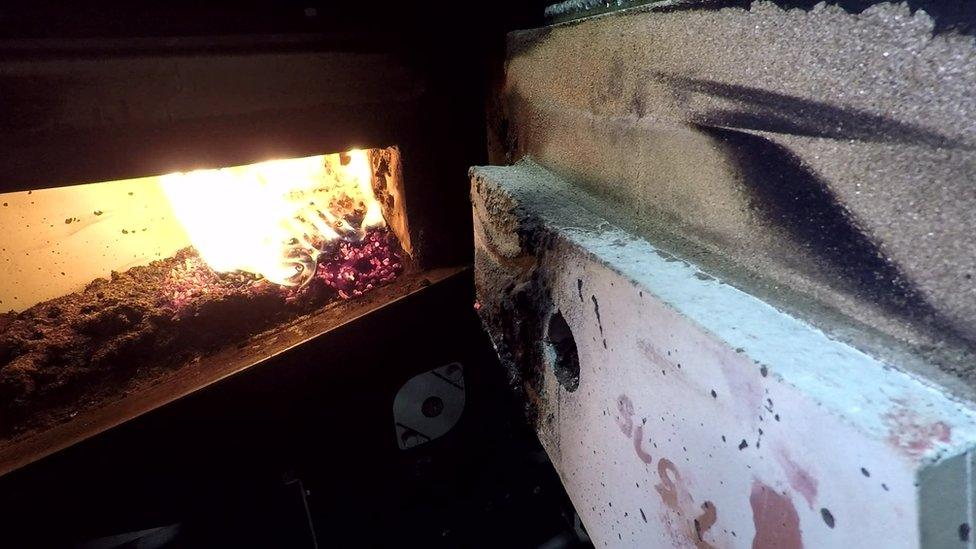
- Published7 September 2018
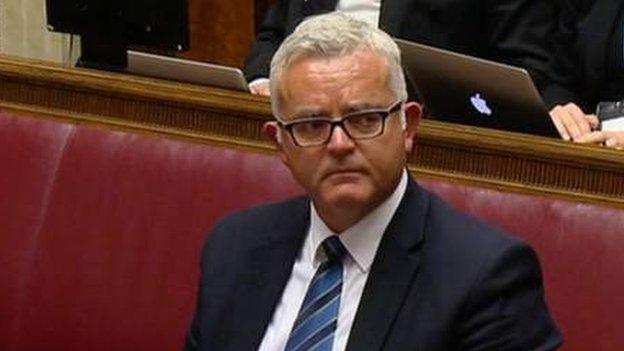
- Published7 September 2018
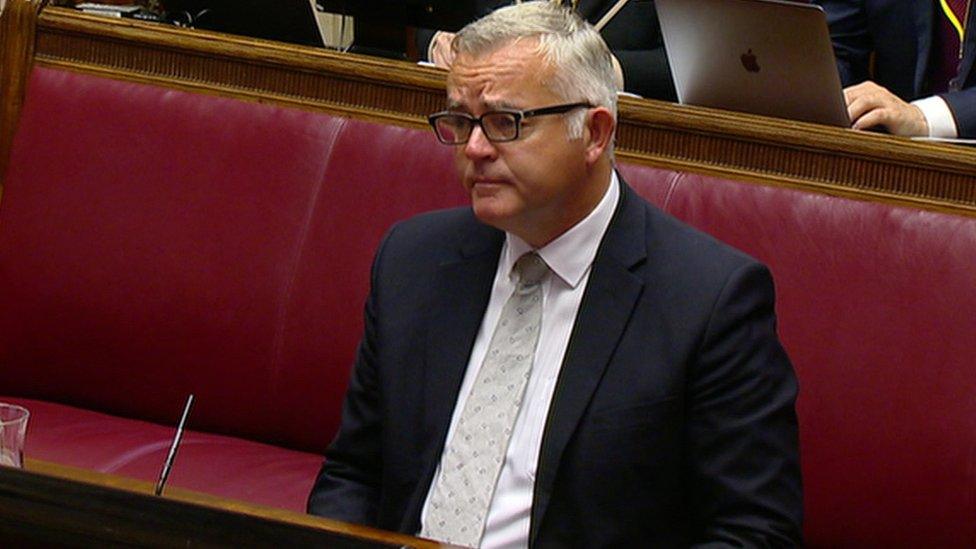
- Published5 September 2018
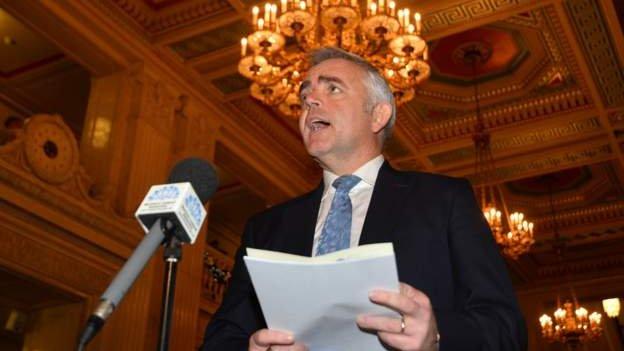
- Published5 September 2018
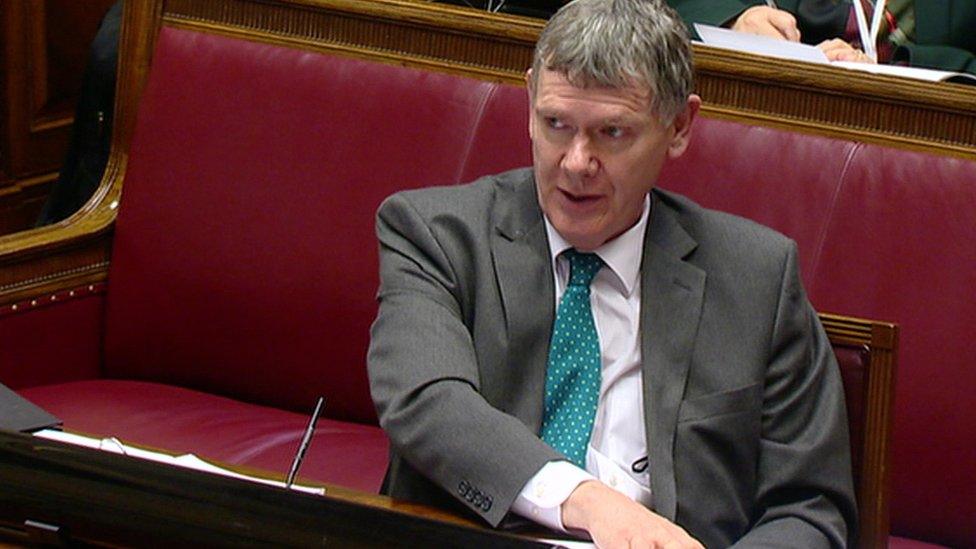
- Published5 September 2018
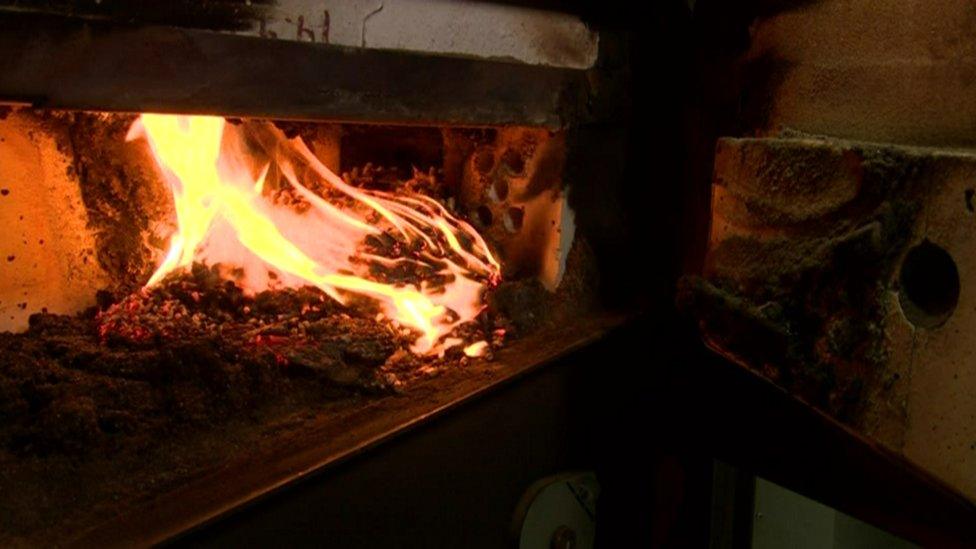
- Published13 March 2020
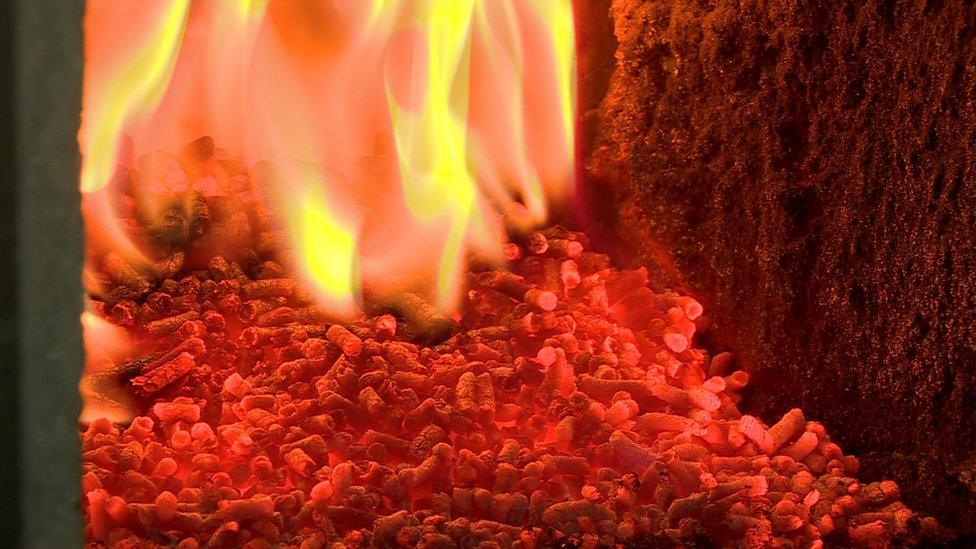
- Published4 September 2018
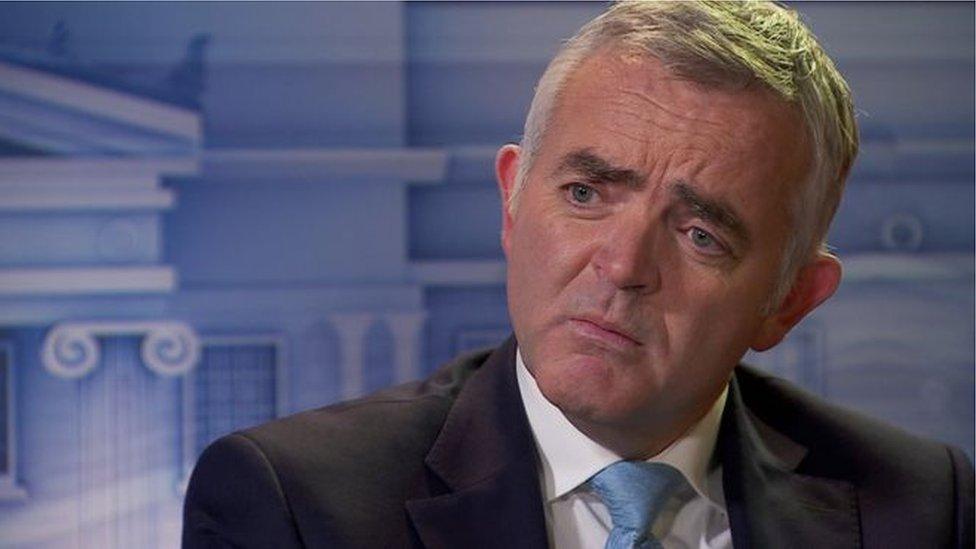
- Published17 April 2018
